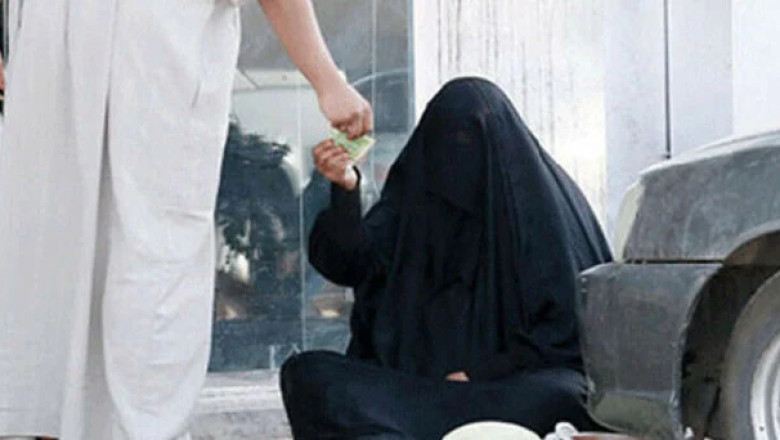views
In a startling revelation, Pakistan’s Ministry of Interior has confirmed that more than 5,000 Pakistani beggars have been deported from Saudi Arabia in recent years, raising serious concerns about human trafficking, exploitation, and the country's global image. This development has highlighted a dark and often overlooked side of illegal migration and the organized networks that exploit vulnerable individuals under the guise of religious travel.
The issue came to the forefront during a high-level meeting between Pakistan's Interior Minister, Mohsin Naqvi, and Saudi Arabia's Deputy Interior Minister, Dr. Nasser bin Abdulaziz Al-Daoud. The meeting focused on enhancing bilateral cooperation in combating organized crime, particularly human trafficking and the misuse of religious visas for unlawful purposes.
According to the Ministry of Interior, many of the individuals sent back from Saudi Arabia were not mere opportunistic beggars but were part of a wider organized crime network. These groups reportedly used Umrah and Hajj visas as a cover to smuggle individuals to the Kingdom, where they were then forced or encouraged to beg on the streets of major cities like Makkah and Madinah. Some were even found stationed outside mosques and marketplaces, targeting pilgrims and tourists for alms.
In response to this alarming trend, Pakistani authorities have taken strict action. Over 4,300 individuals allegedly involved in organized begging or facilitating such activities have been added to the Exit Control List (ECL), effectively barring them from leaving the country. The Federal Investigation Agency (FIA), in coordination with other law enforcement agencies, has launched a comprehensive crackdown on human traffickers and those misusing pilgrimage travel channels.
Recent reports highlight a notable incident at Multan Airport where 16 individuals, including a child, were detained by the FIA. These people were attempting to travel to Saudi Arabia under the pretext of performing Umrah but later confessed that they intended to engage in begging. According to investigators, each individual had paid hefty amounts to agents who promised them access to high-traffic areas in the Kingdom, ensuring lucrative earnings through panhandling.
This practice has not only strained Pakistan's diplomatic ties with Saudi Arabia but also damaged the reputation of Pakistani pilgrims abroad. Saudi authorities have reportedly raised concerns multiple times about the rising number of foreign nationals, particularly Pakistanis, engaging in such illegal behavior during religious seasons. The Kingdom’s strict laws against begging, coupled with its desire to maintain the sanctity of the holy cities, have led to mass deportations and increased scrutiny of visa applications.
Human rights organizations and social welfare groups in Pakistan have also voiced their concerns. Many argue that poverty, lack of education, and limited economic opportunities push individuals—often women, children, and the elderly—into the clutches of trafficking rings. These networks exploit the desperation of poor families, who are promised better livelihoods abroad but end up being subjected to humiliation, detention, and deportation.
Experts suggest that the Pakistani government must go beyond reactive measures and instead focus on addressing the root causes of this issue. This includes implementing stronger laws against human trafficking, enhancing border and airport surveillance, and launching public awareness campaigns to educate citizens about the dangers of falling prey to such rackets.
Additionally, there is a growing call for international collaboration. Both Saudi and Pakistani authorities agree that a joint task force or intelligence-sharing mechanism could be instrumental in tracking and dismantling these criminal syndicates. The recent diplomatic meetings between the two countries are a positive step in this direction.
The government has also hinted at plans to expand rehabilitation programs for deported individuals and reintegrate them into society. Vocational training, microfinance schemes, and support for marginalized families are some of the strategies being considered to reduce the economic pressures that often lead people toward illegal migration and begging.
In conclusion, the deportation of thousands of Pakistani beggars from Saudi Arabia serves as a wake-up call for policymakers, law enforcement, and civil society. It underscores the urgent need to combat human trafficking, protect vulnerable populations, and restore the nation’s dignity on the international stage. Only through sustained effort, genuine reform, and regional cooperation can Pakistan hope to end this cycle of exploitation and create a safer future for its citizens.
Reference: سعودی عرب سے 5ہزار سے زائد بھکاری پاکستان واپس بھیجے گئے:وزارت داخلہ کا انکشاف














Comments
0 comment